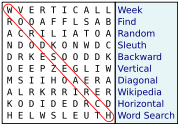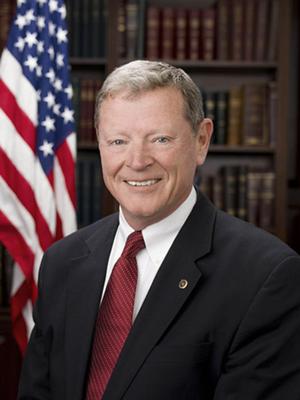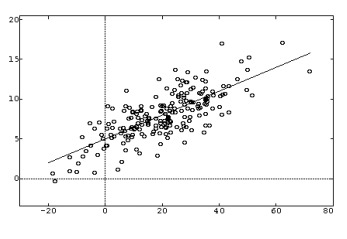- Air Homepage
- Search
- Weather Word Search
A weather word search
Search for more fun ideas.
Play a weather word search game to build your scientific vocabulary. If you have kids, design one of your own and make it fun for them.
There are a few ways to do this. The first step to making a vocabulary activity puzzle is deciding what list of words you want to drill. Depending on the kids' age, you'll need to make a word weather list.
Kids can do a word search with simple words that describe weather and atmospheric phenomena. There are words like rain, snow, sunshine, cloud, wind, temperature, season, tornado, hurricane, etc.
Incidentally, these are the same keywords used to build meteorological websites like this one. For older students, drill words like barometric pressure, cold front, meteorological, and anything else relevant to the lesson.
Assume that the subject is aviation and weather...
You can drill aviation-related words with an air traffic control theme. Players could control airplanes in different conditions, describing the situation with words like 'blizzard' or 'tornado'. Kids can learn about aviation and gain an appreciation for the importance of aviation weather safety this way.
Make it more interesting by digging up some weather words. It's easy to overlook the importance of air traffic controllers.
When they all went on strike a few years back, it became obvious that these are some of the most important people around when it comes to keeping our modern world running. Obviously, air traffic controllers keep an eye on the weather and traffic patterns.
Air traffic control words include communication, radar, air space, flight patterns, and stress (go figure!)
It's really stressful for these people when the weather's bad. In the middle of a tornado or a thunder storm, guiding aircraft to the ground is tough.
If you want, you can fit the words together by hand, or you can create your own word search puzzles on a number of educational websites. One such page is superkids.com/aweb/tools/words/search/.
This is just a suggestion, so don't limit yourself to weather. Choose engaging and relevant themes when creating word games for kids. Here's a dozen popular themes for word games with kids:
- Play word searches or word scrambles with animal names, like dog, cat, lion, elephant, or giraffe.
- Include sports words, like soccer, basketball, baseball, swimming, or gymnastics.
- Focus on food words like pizza, ice cream, apple, banana, spaghetti, or chocolate.
- Create word puzzles using different colors, like red, blue, green, yellow, purple, or orange.
- Use words that describe each season, like summer, winter, spring, and fall. Use words like snow, beach, flowers, or leaves.
- Make puzzles about transportation by including words like car, bus, train, airplane, ship, or bicycle. You can also use nature words like mountains, rivers, and animals.
- Create puzzles with school-related words, like teacher, student, book, pen, pencil, desk, or chalkboard.
- Put work words like doctor, firefighter, police officer, teacher, or chef in there.
- Choose words associated with holidays like Christmas, Halloween, Easter, and Thanksgiving.
- Create puzzles with words like head, arms, legs, eyes, ears, or mouth to help kids learn about the body.
- Introduce words related to countries and their capitals to help kids learn geography.
Make sure you adjust complexity and difficulty levels based on the kids' age and language proficiency. You can also add images or hints to make it more engaging. It's important to pick themes that appeal to kids' interests and help them learn new words.
Something like the word inspire and all its cousins - be inspired - might make for a good word search.
What is the purpose of the weather word search?
You can use it right away. You just enter a list of words, choose a grid size, and the website does the rest. Let's play.
Make word search puzzles with kids and teach them vocabulary. Kids can learn vocabulary through word search puzzles, which are fun and educational. Here's how to make it fun:
- Choose words that are appropriate for the kids' age and language proficiency. Use words they know or ones they're learning.
- Make puzzles based on kids' interests, like animals, sports, food, or colors. It makes the activity more engaging and relevant to them.
- Collaborative creation: Get the kids involved. Let them suggest words and help with the layout. It encourages creativity and ownership.
- Kids will find it easier if you give them hints or clues about the words they need to find. By doing this, they're able to associate the words with their meanings and reinforce their vocabulary.
- Visuals: Include simple illustrations or images along with the words. It can help visual learners and make the activity more fun.
- Make it competitive: Time how fast the kids can find all the words. Keep track of their best times and challenge them to beat them.
- After they've completed the puzzle, talk about the words they found. You can ask them to define the words, use them in sentences, or come up with related words. They'll get a better understanding of the vocabulary this way.
- Provide a list of the words used in the puzzle along with the word search. Checking off words is a great way for kids to practice spelling and pronunciation.
- Experiment with different puzzle formats, like diagonal or backward words, hidden messages, or shape-based puzzles. It keeps things interesting and adds variety.
- Praise the kids when they finish the puzzle. Motivate them with small rewards or incentives.
Make sure you adjust the difficulty and complexity based on the kids' ages and abilities. We want it to be fun, educational, and a great way to expand their vocabulary.
Go back from this Weather Wordsearch page to the Site Map web page.
Search this site for more information now.
How do you create your own weather word search game?
Review science terminology with your own weather word search puzzle. Don't forget to learn some air keywords as well.
Do you have concerns about air pollution in your area??
Perhaps modelling air pollution will provide the answers to your question.
That is what I do on a full-time basis. Find out if it is necessary for your project.
Have your Say...
on the StuffintheAir facebook page
Other topics listed in these guides:
The Stuff-in-the-Air Site Map
And,
Thank you to my research and writing assistants, ChatGPT and WordTune, as well as Wombo and others for the images.
GPT-4, OpenAI's large-scale language generation model (and others provided by Google and Meta), helped generate this text. As soon as draft language is generated, the author reviews, edits, and revises it to their own liking and is responsible for the content.





New! Comments
Do you like what you see here? Please let us know in the box below.